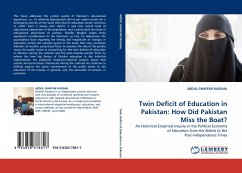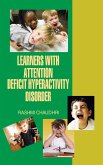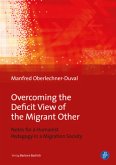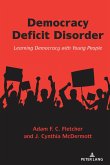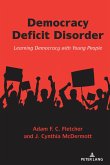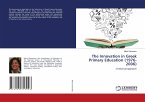This book addresses the central puzzle of Pakistan's educational experience, i.e., its relatively high growth rate of per capita income for a developing country at the same time that its education sector continues to suffer from a severe twin deficit: a very low overall level of educational attainment of the population, and a particularly low level of educational attainment of women. Ghaffar Mughal makes three significant contributions to the literature: a) first, he determines the quantitative facts regarding the timing and magnitude of changes in education during the colonial period in the areas that now constitute Pakistan; b) second, using these facts, he assesses the role of the private versus the public sector in accounting for the twin deficits of education in Pakistan during the colonial and the post-colonial period; third, he refines the time lag theory of Muslim education in the Indo-Pak Subcontinent. His profound historical-empirical analysis shows that certain structural biases introduced during the colonial era continue to militate against the active commitment of the public sector to the education of the masses, in general, and, the education of women, in particular.
Bitte wählen Sie Ihr Anliegen aus.
Rechnungen
Retourenschein anfordern
Bestellstatus
Storno

